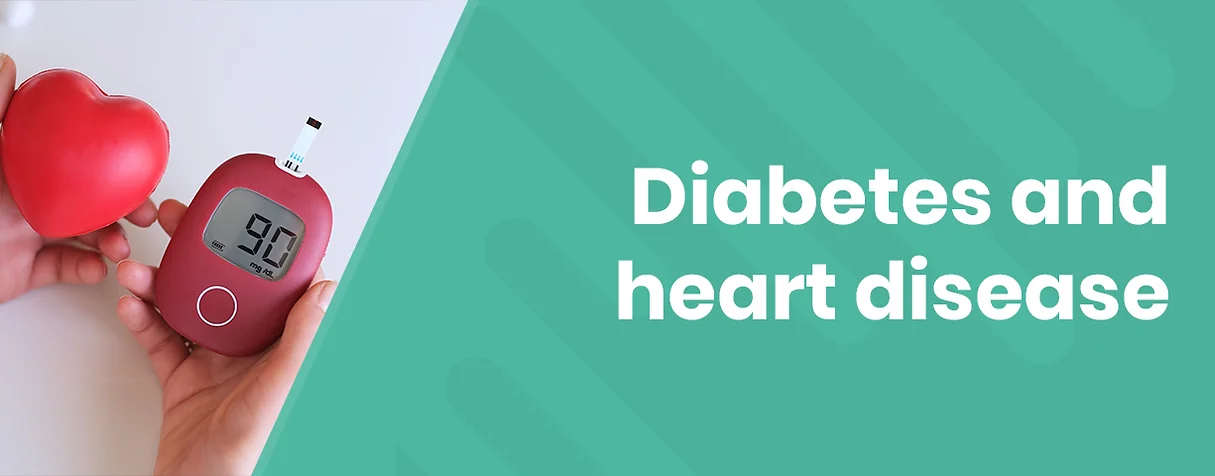
Diabetes and heart disease
Diabetes and heart disease often go hand in hand. That is why, it’s crucial to understand the connection between the two conditions as it will be the first step towards prevention.
Over time, high blood sugar can damage blood vessels and the nerves that control your heart. This is because your body can not use all the sugar properly, so more of it sticks to your red blood cells and creates a buildup. This build-up can block and damage the vessels carrying blood to and from your heart, leading to starve the heart for oxygen and nutrients. Thus, to protect your heart, you must eat healthy, stay active, and do your best to manage your blood pressure, blood sugar, and cholesterol levels.
So, what makes you vulnerable to be at higher risk of heart disease?
Usually, people with diabetes, particularly type 2 diabetes, may have the following risk factors that contribute to their risk for developing cardiovascular disease:
- High blood pressure increases the force of blood through your arteries and can damage artery walls. Having both high blood pressure and diabetes can greatly increase your risk for heart disease.
- High LDL (“bad”) cholesterol and low HDL (“good”) cholesterol may cause a buildup of fatty plaque in your blood vessels. This can create blockages and lead to heart attack or stroke.
- Obesity is a major risk factor for heart disease and has been strongly associated with insulin resistance. Thus, Weight loss can reduce the risk.
- Lack of physical activity is another modifiable major risk factor for insulin resistance and cardiovascular disease.
- Smoking narrows your arteries. If you have diabetes and you are a smoker, your risk of developing heart disease is much higher than that of nonsmokers.
Now that you have a better understanding of the connection between heart disease and diabetes,
How can you prevent it?
Manage your ABCs:
- A: Get a regular A1C test to measure your average blood sugar over 2 to 3 months; aim to stay in your target range as much as possible.
- B: Try to keep your blood pressure below 130/80 mm Hg (or the target your doctor sets).
- C: Manage your cholesterol levels.
- S: Stop smoking or don’t start.
You have the power to manage your own risk factors and improve your heart health through lifestyle changes and working with your doctor to create a treatment plan that is right for you.
It is time to act

0 Comments